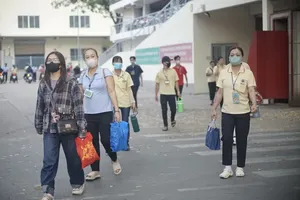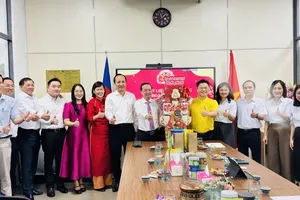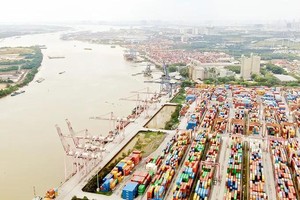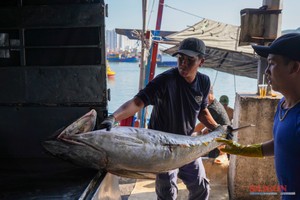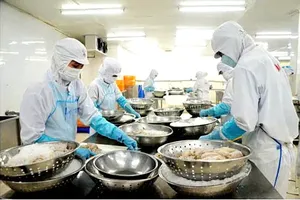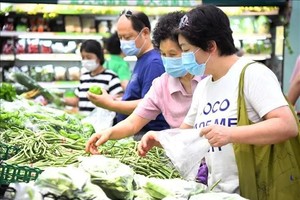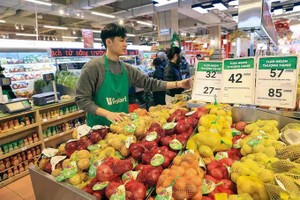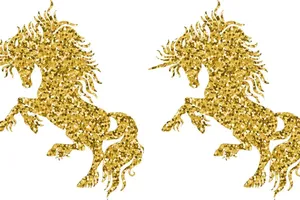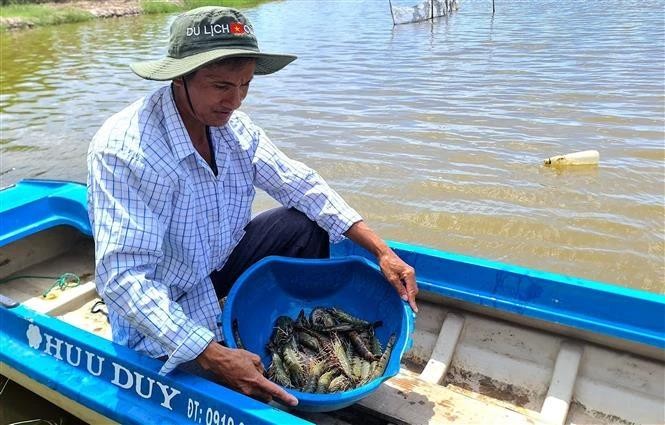
The certification is the first presented to an aquatic farming establishment in Vietnam.
Vo Van Duoc, a local farmer engaging in BAP project for two years, said that the model has helped his family earn VND80 million (US$3,198) per hectare each year.
Vice Chairman of the People’s Committee of Bien Bach Dong commune Nguyen Phi Thoang said that after more than two years of implementation, the project in the locality has proved its efficiency in climate change adaption and income improvement.
Currently, the model has drawn 321 households in the commune with a total farming area of more than 696 hectares. In the coming time, it plans to expand the area to about 2,000 hectares, Hoang said.
Meanwhile, Vice Chairman of the People’s Committee of Thoi Binh district Nguyen Hoang Boa said that Thoi Binh boasts high potential for shrimp-rice cultivation models. The BAP will help the locality ensure sustainable farming for small-scale facilities, thus minimising negative impacts on the environment, ensuring social benefits, and contributing to changing production habits and mindset of farmers and businesses, he said.
A representative from the German Agency for International Cooperation (GIZ) said that there are currently many standards that have been applied in aquaculture in Vietnam such as SQF, GlobalGAP, ASC, BAP, Naturland, AquaGAP, and VietGAP. However, the important standards that are commonly applied for shrimp export today are ASC, GlobalGAP and BAP.
The common point of these three standards is to focus on ensuring food hygiene and safety, disease safety, environmental safety, social safety, and product traceability.
Therefore, by achieving BAP certification, Ca Mau shrimp in particular and Vietnamese shrimp in general will enjoy a wider door to most demanding countries in the world, the representative said, explaining that GAA currently has more than 1,100 members in 70 countries and has become the most prominent organisation representing the global seafood industry.
A representative from Minh Phu company, which engages in the project’s implementation, said that thanks to the BAP certification, products by households in the chain will be purchased by the associated enterprise for all BAP-certified shrimp at a price higher than the market price.
This is a good condition and opportunity for Ca Mau to promote the image of local shrimp to the world market, especially in demanding markets with strict standards, the representative said.
